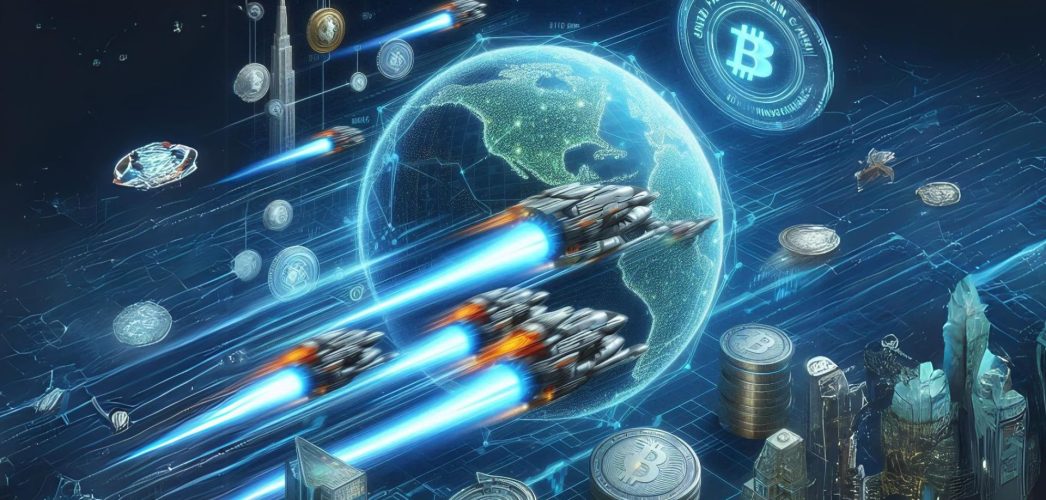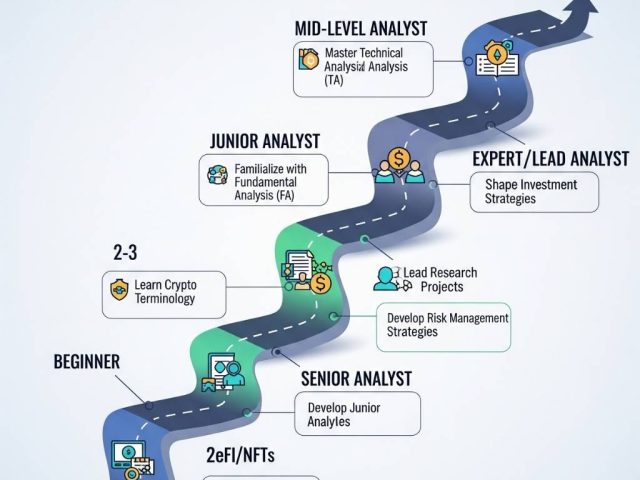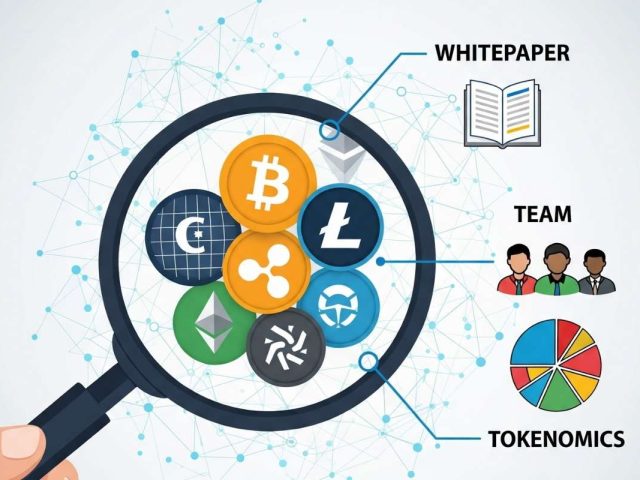In the fast-paced world of cryptocurrency, transaction speed is king. Unlike traditional finance, bogged down by bureaucratic processes and slow legacy systems, blockchain technology promises a future of instantaneous transactions. But with a plethora of blockchains vying for dominance, which one reigns supreme in the realm of speed? Buckle up, because we’re about to unveil the blockchain that processed a mind-blowing 91 million transactions in a single day!
The Need for Speed: Why Transaction Speed Matters in Blockchain
Imagine a world where sending cryptocurrency across the globe feels as effortless as sending an email. That’s the promise of blockchain technology, a decentralized system that eliminates the need for intermediaries, streamlining transactions and slashing processing times. But why exactly is speed such a crucial factor in the world of crypto?
There are two primary reasons:
-
The Bottleneck of Traditional Finance: Traditional financial systems are notorious for their sluggishness. International wire transfers can take days, and even domestic transactions can be subject to long wait times. This slowness can be a major hindrance for businesses and individuals who rely on the swift movement of funds.
-
Faster Transactions, Wider Adoption: For blockchain technology to achieve mainstream adoption, it needs to compete with the speed and convenience of existing financial systems. Imagine trying to buy a cup of coffee with cryptocurrency and having to wait for hours for the transaction to clear! Speedy transactions are essential for making blockchain a viable alternative for everyday use.
Unveiling the Fastest Blockchain: Enter Solana
Now, let’s get down to brass tacks. The blockchain that shattered records with a staggering 91 million transactions in a single day is none other than Solana. Launched in 2020, Solana has emerged as a major contender in the blockchain race, primarily due to its blazing-fast transaction processing capabilities.
Here’s a deeper dive into Solana’s claim to fame:
-
Blazing Past the Competition: Solana’s Record-Breaking Day: On April 6th, 2024, amidst the frenzy of the memecoin craze, Solana achieved a daily average transaction speed (TPS) of a whopping 1,504. This translates to processing over 1.5 million transactions every hour! To put that into perspective, Ethereum, the undisputed leader of the blockchain space for years, currently struggles to handle a fraction of that volume.
-
Under the Hood: Understanding Solana’s Architecture: So, what’s the secret sauce behind Solana’s impressive speed? Unlike most blockchains that rely on a Proof-of-Work (PoW) consensus mechanism, Solana utilizes a unique combination of Proof-of-History (PoH) and Proof-of-Stake (PoS). PoH allows Solana to verify the order of transactions before they even hit the blockchain, significantly reducing processing time. Additionally, PoS eliminates the need for energy-intensive mining, further boosting efficiency.
Speed Kings and Queens: Other Blockchains in the Race
Solana may be the current champion, but the race for blockchain speed is far from over. Several other contenders are pushing the boundaries of transaction processing, each with its own unique approach. Here are a few notable players:
-
Ethereum: The Established Player with Scalability Ambitions: Despite its current limitations, Ethereum remains a dominant force in the blockchain landscape. Recognizing the need for faster transactions, the Ethereum developers are actively working on scaling solutions like Ethereum 2.0, which promises significant improvements in speed and efficiency.
-
Polygon: The Ethereum Sidekick with Impressive Performance: Polygon, a layer-2 scaling solution built on top of Ethereum, offers impressive transaction speeds without compromising on security. By processing transactions off-chain and then committing them back to the Ethereum mainnet, Polygon achieves significantly faster settlement times compared to traditional Ethereum transactions.
-
Beyond the Big Names: Exploring Niche High-Speed Blockchains: The blockchain space is teeming with innovation, and several lesser-known projects are also making waves in the realm of speed. Blockchains like Avalanche, Algorand, and Fantom offer high throughput and low transaction fees, making them attractive options for specific use cases.
Beyond the Numbers: The Trade-offs of Speed
While headlines touting record-breaking transaction speeds are certainly eye-catching, it’s crucial to remember that speed isn’t the only factor to consider when evaluating a blockchain. There’s a delicate balance at play, often referred to as the “blockchain trilemma.”
-
Security vs. Speed: The Blockchain Trilemma: The blockchain trilemma posits that it’s impossible for a blockchain to achieve all three of these qualities simultaneously: scalability (fast transaction processing), security (resistance to attacks), and decentralization (distributed network with no single point of control).
-
Scalability and Decentralization: Can We Have It All? Blockchains that prioritize speed often make compromises in other areas. For instance, Solana’s unique consensus mechanism, while incredibly fast, centralizes some aspects of transaction validation. This raises concerns about the overall security and resilience of the network. Conversely, highly secure blockchains like Bitcoin, which rely on a robust Proof-of-Work mechanism, often suffer from slower transaction speeds.
Understanding these trade-offs is essential for choosing the right blockchain for a specific application. A project focused on micropayments might prioritize speed and efficiency, even if it means sacrificing some decentralization. On the other hand, a platform handling high-value financial transactions might prioritize security and immutability, even at the cost of slightly slower processing times.
The Future of Blockchain Speed: Innovations on the Horizon
The quest for faster, more efficient blockchains is a continuous race, and there’s no shortage of exciting developments on the horizon. Here are a few areas where we can expect to see significant advancements:
-
Layer-2 Solutions: Scaling Ethereum without Sacrificing Security: As mentioned earlier, layer-2 solutions like Polygon offer a promising approach to scaling existing blockchains like Ethereum without compromising on security. We can expect to see further innovation in this space, with new layer-2 protocols emerging to cater to various needs.
-
New Consensus Mechanisms: Exploring Alternatives to Proof-of-Work: Proof-of-Work, while secure, is notoriously energy-intensive. The search for alternative consensus mechanisms that are both secure and scalable is a major area of research. Blockchains utilizing Proof-of-Stake (PoS) or other innovative consensus algorithms are likely to play a significant role in the future of high-speed transactions.
-
Quantum Computing: A Looming Threat or a Catalyst for Change? The rise of quantum computing poses a potential threat to existing blockchain security protocols. However, some experts believe that quantum computing could also lead to the development of even more secure and efficient blockchain solutions.
The future of blockchain speed is brimming with possibilities. As these innovations mature, we can expect to see blockchains that offer lightning-fast transaction processing, robust security, and a high degree of decentralization, finally achieving the elusive holy grail of the blockchain trilemma.
Conclusion: Choosing the Right Blockchain for Your Needs
The breakneck pace of innovation in the blockchain space means there’s no single “best” blockchain for everyone. The ideal choice depends on your specific needs and priorities. Here are some key considerations:
-
Transaction Speed: If speed is your top concern, blockchains like Solana, Polygon, or Avalanche might be worth exploring. However, be mindful of the potential trade-offs in terms of security and decentralization.
-
Security: For applications handling high-value transactions or requiring maximum security, established blockchains like Bitcoin or Ethereum (once scaling solutions are implemented) might be a better fit.
-
Scalability: If you anticipate high transaction volume, consider blockchains with built-in scaling solutions or those actively exploring layer-2 advancements.
-
Decentralization: If a truly decentralized network is paramount, prioritize blockchains with a robust and distributed architecture.
The blockchain landscape is constantly evolving, and staying informed about the latest developments is crucial. Remember, the future of blockchain is likely to be a multi-chain ecosystem, with different blockchains catering to diverse needs. So, buckle up and enjoy the ride as we hurtle towards a future of faster, more efficient, and more versatile blockchain technology. To learn more Join Scentia Research Group for indepth blockchain analysis and valuations. Register today It’s Free
FAQs
Here are some frequently asked questions regarding high-speed blockchains:
H3: Is Solana the fastest blockchain for everyday use?
Solana’s impressive speed makes it a strong contender for everyday transactions, particularly for micropayments or applications requiring near-instantaneous settlements. However, factors like potential network congestion and the evolving regulatory landscape around certain high-speed blockchains need to be considered.
H3: What are the security implications of high-speed blockchains?
The trade-off between speed and security is a critical consideration. Blockchains that prioritize speed often implement more centralized elements in their architecture, which could raise security concerns. Thorough research into a blockchain’s specific security measures is crucial before widespread adoption.
H3: How will the future of blockchain technology impact transaction speeds?
The future of blockchain is likely to see significant advancements in transaction speeds. Layer-2 solutions, alternative consensus mechanisms, and ongoing research into quantum-resistant cryptography all hold promise for achieving faster, more secure, and scalable blockchains.
H3: What are some of the ethical considerations surrounding high-speed blockchains?
The energy consumption of certain high-speed blockchains raises ethical concerns. Additionally, the potential for faster movement of illicit funds requires careful consideration of regulatory frameworks to ensure responsible development and implementation.
H3: Where can I learn more about the latest developments in blockchain technology?
Numerous resources are available to stay up-to-date on the ever-evolving blockchain landscape. Reputable industry publications, developer communities, and research institutions frequently publish reports and articles on the latest advancements in blockchain technology, including those related to transaction speeds.





